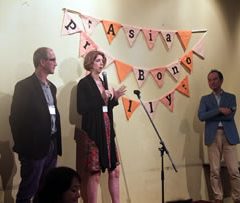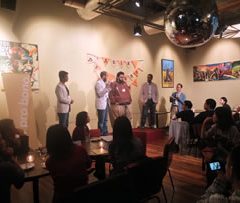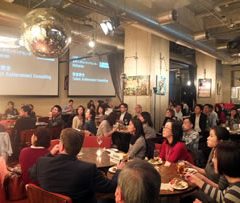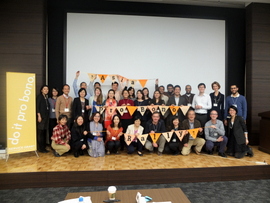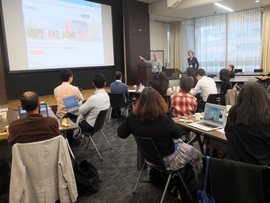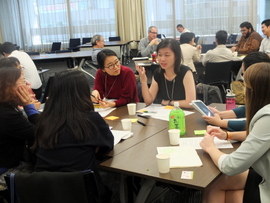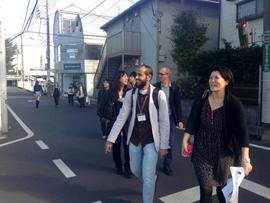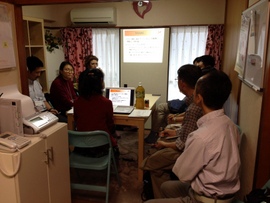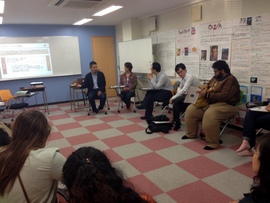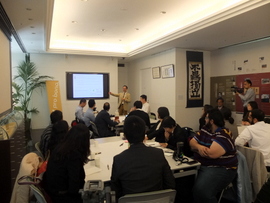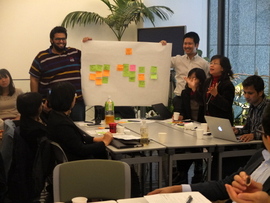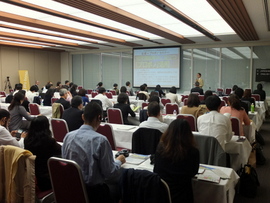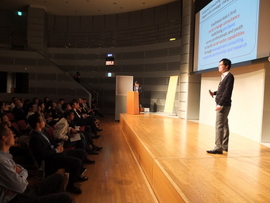Asia Pro Bono Rally TOKYO 2014
– Asian pro bono intermediaries get together in Tokyo

Tokyo Manifest 2014
In Asia, there are 4 billion people and 10 million non-profit organisations and social enterprises. We see tremendous potential in the collective power of socially-minded individuals and organizations in Asia to make a difference. As pro bono intermediaries, we commit to improving society by mobilizing and empowering talent to provide professional services for greater social impact. These pro bono services will be delivered in partnership with individuals and corporates to strengthen and assist initiatives tackling complex social problems in areas such as poverty, education, health, welfare and the environment. With the vision of becoming a center of excellence for pro bono practices in Asia, we will continue to work together on the following goals in the immediate future:
As participants of the inaugural Asia Pro Bono Rally 2014, we agree to collaborate together further in a spirit of mutual improvement and friendship to achieve the above goals.
Together, |
About
Asian pro bono intermediaries get together in Tokyo.
A new step for civil exchange between Asian societies.
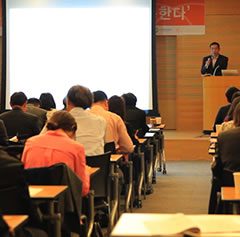
The 1st East Asia Pro Bono Conference
The Asia Pro Bono Rally 2014 in Tokyo is a conference focused on gaining insight into the pro bono movement across Asia and determining next steps for pro bono and civil society in each participating country. Following Pro Bono Week, a global campaign that celebrates and activates pro bono service across all professions that use their talents to make a difference, this convening brings together Asian pro bono intermediaries and corporations interested in doing pro bono. Building off the momentum from Pro Bono Week, the Asia Pro Bono Rally comes at an opportune moment to share knowledge, present case studies, discuss various models of pro bono, showcase pioneer movements in each society, and bring more impact to civil societies throughout Asia. Feel the energy surrounding the pro bono movement and attend this special event.
Special guests propelling the pro bono movement in Asia!
Taproot Foundation, a pioneer and thought leader in pro bono service, and the BMW Foundation, an international networking foundation supporting pro bono intermediaries worldwide, will be special guests speaking to the power of pro bono and inspiring action. Don’t miss the message from BMW Foundation’s Executive Director, Markus Hipp and Taproot Foundation’s CEO, Liz Hamburg, as they speak about the future of the pro bono movement in Asia.

Markus Hipp
Excecutive Director
BMW Foundation

Liz Hamburg
President & CEO
Taproot Foundation

Joel Bashevkin
Executive Director, San Francisco Region
Taproot Foundation
プログラム
Participants
(Alphabetical order)
BRIDGE|South Korea
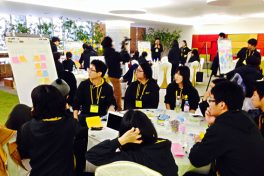 BRIDGE helps corporations utilize their expertise to efficiently solve social problems. BRIDGE designs and manages corporate pro bono projects and finds the right public and social partners for the companies to achieve greater efficiency.
BRIDGE helps corporations utilize their expertise to efficiently solve social problems. BRIDGE designs and manages corporate pro bono projects and finds the right public and social partners for the companies to achieve greater efficiency.
BRIDGE does not see itself as a mere service provider for companies. BRIDGE provides companies with opportunities to solve social problems.
BRIDGE is currently running a national corporate pro bono campaign, CAMPAIGN MATCH, with the government to develop a culture of corporate pro bono in Korea. The more companies use their core competencies in corporate philanthropy, the more problems will be solved.
http://bridge.or.kr/
Conjunct Consulting|Singapore

Conjunct Consulting is Southeast Asia’s first social change consultancy, mobilising youth and professionals to engage in pro bono consulting to strengthen social change organizations in Singapore. Conjunct does this through management consulting projects, strategic collaborations, and one-day corporate scaleathon events. Since its inception in August 2011, Conjunct Consulting has delivered 48 consulting projects with a total of 39 non-profit partners across various sectors, with over $1 million worth of social impact being created. Conjunct Consulting equips its partners in the social sector with sustainable strategies and thought processes to ensure they are ready for future challenges. Conjunct also empowers the next generation of social sector leaders with the business skills and knowledge needed for continual strategic change.
Conjunct Consulting has been recognised by the government via the New Initiative Grant awarded in 2012, and was more recently awarded the President’s Challenge Social Enterprise Commendation Award in December 2013.
http://conjunctconsulting.org/
Empact|Singapore
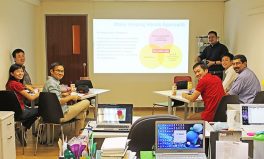
Empact, a member of Social Enterprise Association founded in 2011, empowers social organizations (non-profit organizations and social enterprises) by providing them access to affordable and quality professional services that are critical to their daily operations. We are able to do this by collaborating with practitioners, corporations, students and associations who are volunteering their time and expertise to the clients. Empact manages and interfaces with the clients so that our volunteers can focus on contributing their expertise. It was this very philosophy that led to Empact being awarded the New Initiative Grant by the National Volunteer and Philanthropy Centre (NVPC) in March 2012.
The critical success factors of Singapore’s economic development have always been the convergence of worldwide skills and talents in this cosmopolitan city.As a knowledge-based economy and a regional hub for many, Singapore also has the potential to become the region’s largest base of pro bono service providers to non-profit and social enterprises.
http://empact.sg/
Ghadan|Saudi Arabia
Ghadan is an intermediary nonprofit social enterprise focusing in the area of social engagement. Ghadan founded in Jeddah city in Saudi Arabia. Ghadan conducts a wide variety of programs and initiatives aiming at building the capacity of Saudi as well as third sector organizations to bring about an inclusive civic engagement. Our intermediary role has enabled us to operate at different levels ranging from small-scale social entrepreneurs and grassroot organizations, to large bodies of private corporations and academic institutions in Saudi Arabia. Ghadan has just started a pro bono initiative covering the kingdom.
“I can say that pro bono movement is in an early stage and from our pilot with companies and NGOs and our experience, we see a great potential for expansion.
http://www.ghadan.com.sa/
Huizeren|China

Based in Beijing, Huizeren was established in 2003 as an NGO that researches and develops volunteering management mechanisms for social innovation in China. Huizeren provides capacity building through professional volunteers to support the sustainable development of China’s civil society. Since 2011, Huizeren has completed 46 Volunteer Service Grant pro bono projects in Strategy Planning, IT, Marketing, HR, and legal services, and connecting 89 NGO organizations to professional talent in companies like HP, IBM, Standard Chartered Bank, Ericsson, PWC, renrendai.com, EMC, Baidu.com and Lenovo. Through these projects, more than 360 professional volunteers have collectively contributed 10050 hours to pro bono service. In 2014, Huizeren plans to continue scaling the program by implementing 30 more projects for 100 NGOs.
Civil society in China began to emerge following the Wenchuan earthquake and took off during the Beijing Olympic Games in 2008. People voluntarily organized themselves to set up NGOs using their own social resources to provide public welfare services to China. Due to scarce resources, undeveloped infrastructure, and a lack of technical expertise, NGOs find it hard to succeed. So we need to promote cross-sector working between NGOs and professional corporations. Huizeren sources, matches, and manages professional volunteers placed on projects with NGOs. These volunteers provide professional and technical services, and help establish a bridge between enterprises and public institutions. Huizeren helps provide more effective, worthwhile, and professional services for NGOs, which in turn promotes more rapid, higher quality development of NGOs and their work. The value of Pro Bono to China is remarkable and profound which can inspire corporate volunteers to make a difference for China.
iVolunteer|India
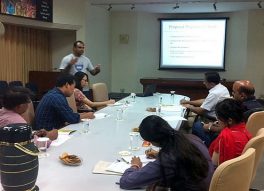 iVolunteer is a social enterprise that promotes volunteering. Our mission is to bring volunteers and organisations together to share time, skills and passion to promote India’s social development.
iVolunteer is a social enterprise that promotes volunteering. Our mission is to bring volunteers and organisations together to share time, skills and passion to promote India’s social development.
Over the last decade, we have expanded to reach out to over 300 organizations in India and over 40 countries globally and today, have an all India presence through offices in Delhi, Mumbai, Bangalore, Chennai, Kolkata, Hyderabad and Pune. We reach out to more than a lakh of individuals and engage 1000 active volunteers at any given time, making us one of the largest volunteering enterprises in India.
Whiteboard, an initiative of iVolunteer, aims to be an engaged and dynamic volunteering eco system where NGOs have access to the best professional expertise to help them in what they do.’GYAN’ an acronym for Get Your Answers Now are customized and highly interactive training workshops designed to build capacity of employees of Non Profit Organizations.
http://ivolunteer.in/
SESNET|South Korea
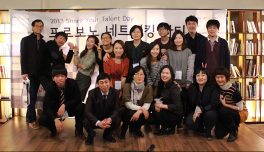
SESNET was founded by experts and retired CEOs working in various fields, including Business Management, Law, Design, Science/Technology, and Media/Marketing. Based on the belief that “the best philanthropy is aid to independence”, this team supports the establishment and development of social enterprises in an innovative way to solve social problems like poverty, unemployment, environmental matters, and insufficient social services. SESNET manages activities such as one-on-one and group consultations, online or hotline consultations, and business mentoring. The organization also holds education and training workshops called “Pro bono Hub Schools” that offer projects such as brand identity building.
Social change emerged as an alternative and many sectors, for profit corporations and universities for example, are interested in contributing. We are helping these sectors get involved in social change without difficulty.
http://sesnet.or.kr/
Talent Achievement Consulting|China
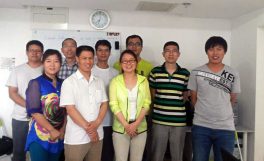
TAC(Talent Achievement Consulting)is a nonprofit organization that provides talent development solution and service through skill-based volunteerism, an innovative cross-sector program design to develop talent leadership. This strategic approach to corporate human resource service builds stronger teams and develops employee skills while giving companies to a positive return on their social investment. At the same time, with the support of corporate talents, nonprofit organizations achieve better impact to the community they serve.
Thai Young Philanthropist Network|Thailand
Thai Young Philanthropist Network (TYPN) is a community of social-minded professionals with a shared goal to create a better Thai society for our generation and the next. Founded in 2008, TYPN initiatives focus primarily on empowering underprivileged and strengthening capacity of leading change agents in Thailand. TYPN has grown from a group of 10 at its inception to over 2,600 members as of August 2014; initiated 20+ projects which directly benefiting 1,200 marginalized population; empowered over 50 social purpose organizations; and engaged nearly 1,000 of active citizens in the process. TYPN is a volunteer-based network. All the core team members, including the founder, have worked on the projects part-time and on voluntary basis.
GLab is a social innovation lab at the School of Global Studies (SGS), Thammasat University. GLab is a think-and-do unit, applying human centered design to co-create innovation for social change in Thailand and beyond.
In 2014, TYPN and GLab has collaborated to systemize advisory and professional service provision to Thai social purpose organizations with no or minimum cost. The project is a scaled up effort of TYPN to unlock more human capital, through public-private-people partnerships, towards capacity building of the social sector in Thailand and beyond.
Additionally, TYPN started the Brain Exchange Initiative (BEX), as a platform to match top students from leading universities abroad with short-term assignments in government agencies, nonprofit organizations and social enterprises in Thailand . BEX was established and endorsed by the Royal Thai Government in 2010 with the in-kind and technical support by ChangeFusion Institute and OpenDream respectively. In the past years, BEX has mobilized graduate students from Harvard University, Columbia University and University of Cambridge to work with diverse development agencies in Thailand, ranging from Office of the Prime Minister, International Institute for Trade and Development and Mae Fah Luang Foundation. The initiative is recognized as a best practice in Social Entrepreneurship internship at Ashoka U Exchange 2014.
http://www.typn.org/
Service Grant Japan|Japan
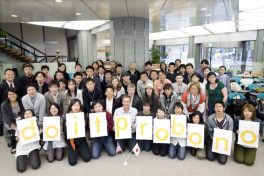
Service Grant Japan is the leading organization of Japan’s pro bono movement, from initially introducing the pro bono concept in Japanese society, to conducting more than 200 successful pro bono projects with 2,100 pro bono workers. Our mission is to nurture a healthy culture of civil society where people collaborate productively to solve social problems and act for challenges.
Service Grant Japan is making various challenges for innovative pro bono models such as “Home Town Pro Bono” which supports local naighborhood organizations, “Furusato Pro Bono” which supports local community in remote areas far away from large cities, “Mama-bono” which empowers women who are taking child-rearing leave or off the job and still wishing to come back to work. Also SGJ has provided 7 domestic intermediary organizations in Japan with training and operational support on pro bono by lending their expertise to help build a local pro bono movement.
http://www.servicegrant.or.jp/
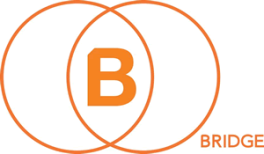 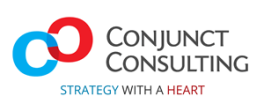       |
Support Us
Asia Pro Bono Rally TOKYO 2014 has been launched as a non-sponsored independent initiative by Service Grant Japan.We ask all the Asian guests to pay by themselves for their travelling cost between their own countries and Tokyo, however we would hope their accommodation, transfer inside Tokyo city, and event-related costs should be covered as much as possible by Service Grant Japan.
If you can have sympathy towards this event and feel positive about helping us, please join as a supporting member of Service Grant Japan. You can be a supporting member with 3,000 JPY or more.
We would appreciate so much if you cooperate with Service Grant Japan.
Co-Sponsors



Please feel free to contact Service Grant Japan who is the host of this event,
if you have any questions or comments.



